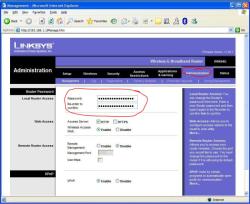What are the advantages and disadvantages of a computer?
Computers have become an integral part of modern life, impacting various aspects of work, education, communication, and entertainment. Here are some of the key advantages and disadvantages of using computers:
Advantages of Computers:
Efficiency:
- Computers can perform complex tasks quickly and accurately, improving efficiency in various fields such as data processing, calculations, and information retrieval.
Multitasking:
- Modern computers allow users to perform multiple tasks simultaneously, increasing productivity. This capability is essential for work, research, and entertainment.
Storage and Retrieval:
- Computers provide vast storage capacity for data, documents, and multimedia files. Information can be easily stored, organized, and retrieved when needed.
Communication:
- Computers facilitate communication through emails, messaging, video calls, and social media platforms. This has transformed the way individuals and businesses connect globally.
Automation:
- Automation of repetitive tasks is a significant advantage. Computers can handle routine processes, reducing the need for manual labor and increasing accuracy.
Access to Information:
- The internet enables easy access to a vast amount of information. Users can research, learn, and stay informed on a wide range of topics.
Educational Tools:
- Computers are essential in education, providing students and educators with tools for research, collaboration, and interactive learning experiences.
Creativity and Design:
- Computers support creative endeavors such as graphic design, video editing, music production, and 3D modeling. They empower individuals to express their creativity.
Global Connectivity:
- Computers connect people worldwide, fostering global communication, collaboration, and cultural exchange.
Precision and Accuracy:
- Computers operate with high precision and accuracy, minimizing errors in tasks such as calculations, simulations, and scientific research.
Disadvantages of Computers:
Cost:
- The initial cost of purchasing computers and related hardware and software can be high. Maintenance, upgrades, and repairs can also contribute to ongoing expenses.
Complexity:
- Computers and their software can be complex, requiring users to have a certain level of technical knowledge. This complexity may be a barrier for some individuals.
Security Concerns:
- The internet and interconnected systems introduce security risks, including the threat of viruses, malware, data breaches, and cyberattacks. Protecting sensitive information is a constant challenge.
Dependence:
- Societal dependence on computers raises concerns about the impact of system failures, power outages, or cyber disruptions. Overreliance on technology can lead to vulnerabilities.
Health Issues:
- Prolonged computer use can contribute to health issues such as eyestrain, back problems, and repetitive strain injuries. Sedentary behavior associated with computer use is also a concern.
Environmental Impact:
- The production and disposal of electronic devices contribute to electronic waste. The environmental impact of manufacturing and disposing of computers raises sustainability concerns.
Privacy Concerns:
- The collection and storage of personal data by companies and online platforms raise privacy concerns. Users may be vulnerable to unauthorized access or misuse of their information.
Job Displacement:
- Automation driven by computers can lead to job displacement in certain industries. While creating new job opportunities, it may also require workers to acquire new skills.
Social Isolation:
- Excessive use of computers and online communication may contribute to social isolation and reduced face-to-face interactions, particularly among younger generations.
Software Compatibility Issues:
- Incompatibility between different software programs and versions can create challenges when sharing documents or collaborating with others.
It's important to note that the impact of computers varies based on individual experiences, the nature of work or activities, and societal contexts. While computers offer numerous advantages, addressing their disadvantages requires careful consideration, ethical use, and ongoing efforts to mitigate risks.
Exploring the Advantages of Computers in Productivity, Communication, and Entertainment
Computers have revolutionized various aspects of our lives, offering a plethora of advantages in productivity, communication, and entertainment.
Productivity:
Increased Efficiency: Computers automate repetitive tasks, enabling faster and more accurate work completion.
Enhanced Collaboration: Online tools and shared workspaces facilitate teamwork and seamless collaboration.
Access to Information: Computers provide instant access to a vast repository of information, empowering informed decision-making.
Communication:
Global Connectivity: Computers enable instant communication across the globe, bridging distances and connecting people.
Diverse Communication Channels: Email, social media, video conferencing, and messaging apps offer a range of communication options.
Real-time Collaboration: Online platforms and tools facilitate real-time collaboration on projects and discussions.
Entertainment:
Immersive Experiences: Games, movies, and virtual reality provide immersive and engaging entertainment experiences.
Creative Expression: Computers offer tools for creative expression, such as graphic design, music production, and video editing.
Access to Entertainment: Online streaming services provide access to a vast library of movies, TV shows, music, and games.
Addressing the Disadvantages of Computers, Such as Addiction, Privacy Concerns, and Environmental Impact
Despite their numerous advantages, computers also pose certain disadvantages that require careful consideration.
Addiction:
Excessive Use: Excessive computer use can lead to addiction, affecting physical and mental health.
Work-Life Balance: Obsession with computers can disrupt work-life balance and social interactions.
Digital Detox: Regular breaks from technology are essential to maintain a healthy relationship with computers.
Privacy Concerns:
Data Security: Online activities leave digital footprints, raising privacy concerns.
Data Protection: Protecting personal information from cybercriminals and unauthorized access is crucial.
Responsible Online Behavior: Practicing safe online habits and using secure platforms are essential for privacy protection.
Environmental Impact:
E-waste Generation: Electronic waste poses environmental hazards if not properly disposed of.
Energy Consumption: Computers and their infrastructure consume significant energy, contributing to greenhouse gas emissions.
Sustainable Practices: Choosing eco-friendly electronics, adopting energy-efficient practices, and recycling e-waste are crucial for minimizing environmental impact.
Striking a Balance and Utilizing Computers Responsibly
To maximize the benefits of computers while minimizing their negative impacts, it is essential to strike a balance and utilize them responsibly.
Mindful Usage: Be mindful of computer usage time and prioritize real-life interactions and physical activity.
Digital Literacy: Develop digital literacy skills to navigate the online world safely and responsibly.
Privacy-Conscious Behavior: Protect your privacy by using strong passwords, avoiding suspicious links, and being cautious about sharing personal information online.
Sustainable Choices: Choose energy-efficient devices, opt for paperless communication, and recycle or donate old electronics responsibly.
By adopting responsible computer usage practices, we can reap the benefits of technology while minimizing its negative effects on our lives and the environment.











